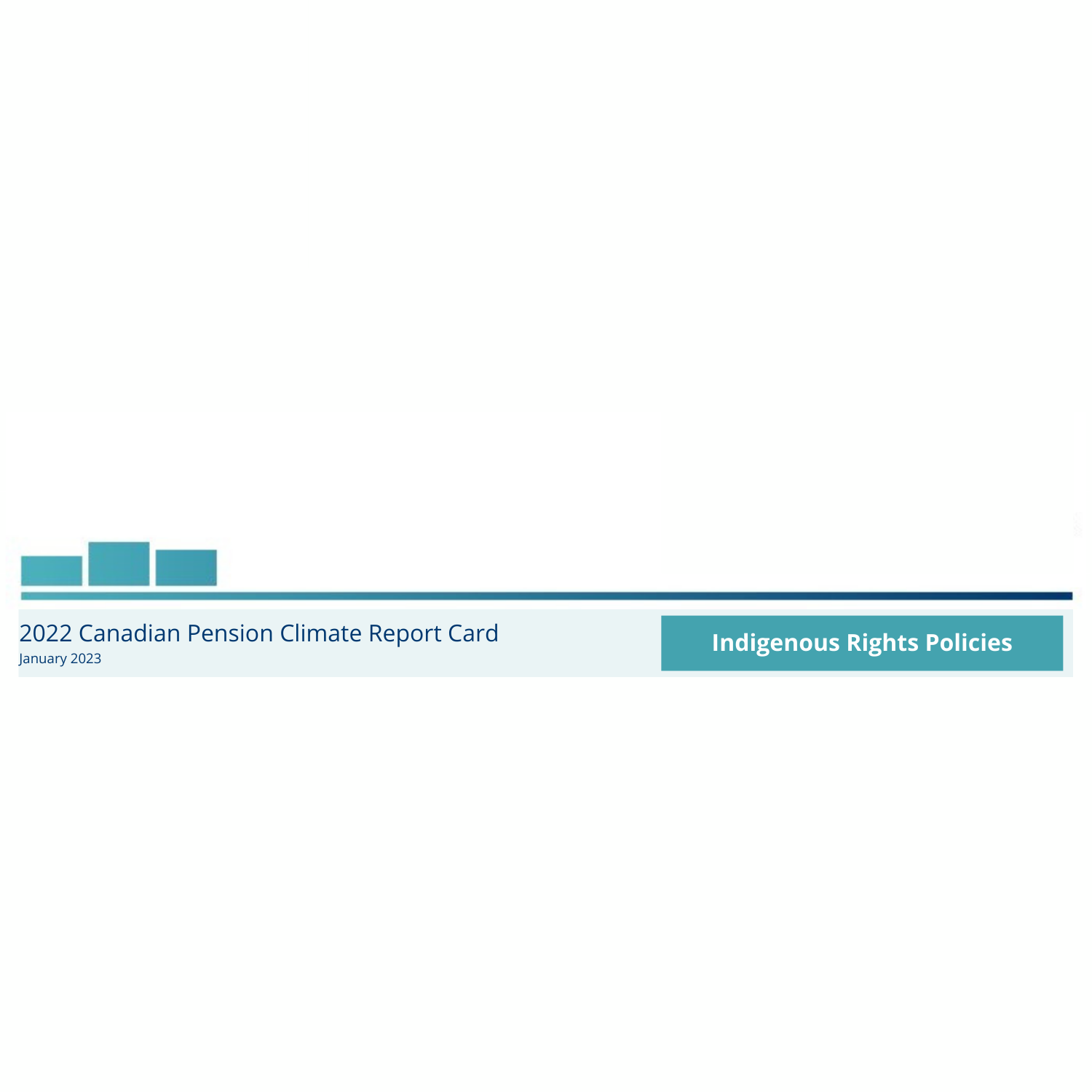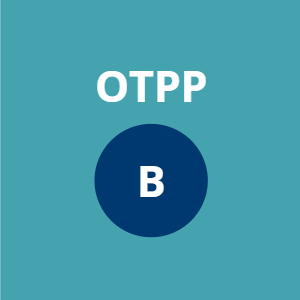
Indigenous Rights and Reconciliation
The 2022 Canadian Pension Climate Report Card includes an analysis of the extent to which Indigenous rights have been considered by pension managers in the investment process, including the existence of an Indigenous rights policy aligned with the United Nations Declaration on the Rights of Indigenous Peoples (UNDRIP) and the right to Free, Prior and Informed Consent. This information did not contribute to the pension administrators’ climate scores but provides further context on how pension managers are managing climate-related financial risks and responsible investing concerns. Information is current to December 31, 2022.
Four Canadian pension managers analyzed in the report have publicly available information regarding consideration of Indigenous rights:
Investment Management Corporation of Ontario (IMCO)
IMCO’s largest client, the Ontario Pension Board, states in its 2021 Annual Report (p.23): “We also support a transition to a net-zero economy informed by Indigenous perspectives that supports Indigenous economic opportunities and encourages business practices that align with the principles of the United Nations Declaration on the Rights of Indigenous Peoples.”
Public Service Pension Investment Board (PSP)
PSP’s 2022 Annual Report (p.24) states that going forward, the investment manager “will support shareholder proposals requesting that a company uphold the UN Declaration on the Rights of Indigenous Peoples or create a policy or program to do so. We will also support proposals that ask companies to obtain and maintain free, prior and informed consent of Indigenous people (FPIC); develop, strengthen or implement an FPIC policy or guideline; or assess and report on the adoption of FPIC policies.”
OPSEU Pension Trust (OPTrust)
OPTrust’s Proxy Voting Guidelines (p.21) state it supports the “spirit and intent” of UNDRIP.
University Pension Plan (UPP)
In its website FAQ How is UPP considering the human rights of Indigenous peoples?, UPP states it is “committed to taking action respectfully and intentionally as outlined in Call to Action #92 from the Truth and Reconciliation Commission of Canada” and that through its partnership with the Shareholder Association for Research and Education (SHARE), “companies in UPP’s investment portfolio are being engaged in outcome-focused dialogues to make tangible commitments to reconciliation, including the adoption of Indigenous rights policies, employment targets and procurement from Indigenous-owned businesses.”
As Canadians grapple with our country’s ongoing legacy of violently dispossessing Indigenous peoples of their lands and waters to make way for resource extraction, Canada’s largest pension funds have a clear role to play in the process of reconciliation. It appears that only a handful of pensions covered in this report have taken steps to develop an Indigenous rights and reconciliation framework in their investment processes. This is particularly troubling for pension managers that are Crown corporations in jurisdictions that have enacted in law a commitment to implement UNDRIP, such as Canada and British Columbia. The Alberta Investment Management Corporation, the Caisse de dépôt et placement du Québec, the Canada Pension Plan Investment Board, the Healthcare of Ontario Pension Plan, the Ontario Municipal Employees Pension Plan (OMERS) and the Ontario Teachers’ Pension Plan have said virtually nothing about Indigenous rights and reconciliation. IMCO, OPTrust, PSP and UPP, as described above, appear to be putting the building blocks in place for a commitment to UNDRIP. The British Columbia Investment Management Corporation noted in its 2021-2022 Corporate Annual Report (p.6) that reconciliation and Indigenous inclusion and engagement were learning priorities for its Board in 2021.
Pension funds should adopt a transparent policy to respect the rights of Indigenous Peoples in investment decisions. UNDRIP explicitly requires Free, Prior and Informed Consent for activities that may affect Indigenous Peoples or their territories. Furthermore, the Truth and Reconciliation Commission Calls to Action require Canadian investors and businesses to respect Indigenous governance and the rights of Indigenous Peoples to provide– or deny– consent. This is particularly relevant for resource extraction and land-use projects, as projects financed by pension funds can negatively impact Indigenous peoples’ lands and waters.












